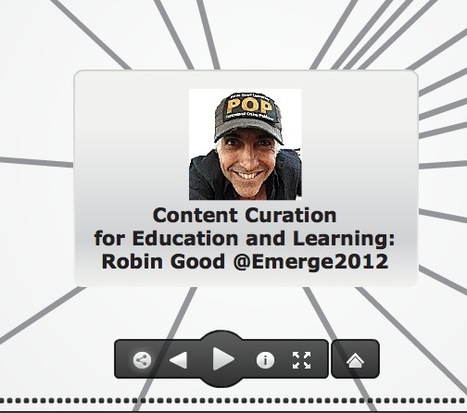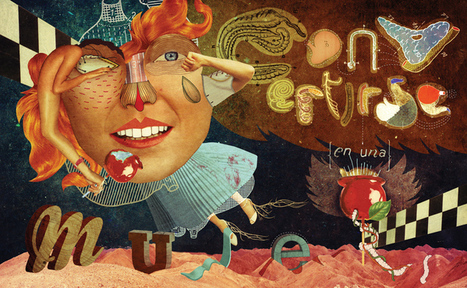Robin Good: I believe that content curation will play a very important role in the future of education and learning and this presentation-map focuses on this topic.
I have identified at least ten reasons that are transforming and weakening the education-certification system as it is now, and may rapidly give way to new ways of teaching, learning and getting certified which will likely involve a great deal of curation (both for those who teach/guide and those who want to learn).
In this presentation-map I am introducing the concept of curation for education, the key factors that I see are transforming traditional academic institutions and the learning industry in general, and the tools, resources and examples that are relevant to those working in these fields and wanting to find out more.
As part of my workshop session during the emerge2012 conference in which I have first presented these ideas, I have also created an "open", collaborative wiki-map where, you are welcome to contribute inspiring curated collections. You will find instructions on how to contribute to it at the end of this presentation.
Full presentation-map: http://www.mindomo.com/mindmap/content-curation-for-education-and-learning-robin-good-emerge2012-98ccaad217074a07b9bff8b76effab8e
"What is content curation in the context of education and why it is going to be so relevant in the near future. Benefits of content curation, examples and tools."
Emerge2012 Conference
Via Robin Good



 Your new post is loading...
Your new post is loading...









